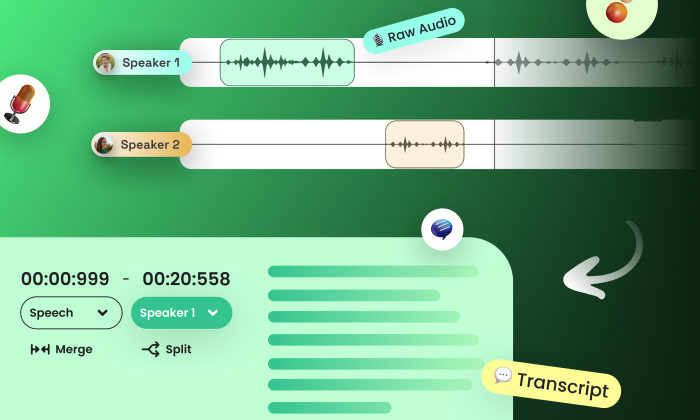What are the biggest challenges in scaling medical ASR globally?
ASR
Healthcare
Speech AI
Scaling medical Automatic Speech Recognition (ASR) systems globally is a complex endeavor, requiring careful navigation of language, cultural, and regulatory landscapes. FutureBeeAI, with its expertise in AI data collection and speech annotation, is well-positioned to address these challenges, ensuring that ASR solutions enhance healthcare documentation efficiency worldwide.
Understanding the Landscape of Medical ASR
Medical ASR systems are pivotal in transforming clinician dictations into text, facilitating efficient documentation and improved workflow in healthcare. However, scaling these systems globally involves more than just voice-to-text conversion. It requires an in-depth understanding of regional dialects, diverse medical terminologies, and compliance with local regulations.
Critical Challenges in Global Scaling of Medical ASR Systems
Language and Dialect Variation
- Challenge: Accommodating diverse languages and dialects is crucial. Medical terminology can vary significantly, with terms in North America possibly differing in meaning or usage in Europe or Asia. Accents and dialects further complicate accurate transcription.
- Solution: Training ASR systems on diverse datasets that reflect regional speech patterns and medical vocabularies is essential. FutureBeeAI excels in collecting such datasets, employing a variety of data collection strategies to ensure comprehensive coverage of linguistic diversity.
Cultural Context and Healthcare Practices
- Challenge: Healthcare practices are deeply rooted in cultural contexts, affecting how clinicians express themselves during dictation. This cultural disparity impacts the ASR system's ability to provide accurate transcriptions.
- Solution: Engaging local healthcare professionals in the data collection and training phases is vital. FutureBeeAI collaborates with medical experts to gather culturally nuanced data, ensuring ASR systems comprehend the context of medical expressions accurately.
Data Privacy and Compliance
- Challenge: Ensuring compliance with regulations like HIPAA and GDPR while scaling ASR systems internationally is a significant hurdle. Handling Protected Health Information (PHI) necessitates rigorous data anonymization and consent processes.
- Solution: FutureBeeAI's compliance frameworks align with global standards, ensuring data is handled with utmost care. Our Yugo platform facilitates explicit consent and robust de-identification processes, safeguarding privacy across regions.
Technical Infrastructure and Resource Availability
- Challenge: The technical infrastructure required to support high-quality ASR systems varies globally. Differences in internet connectivity and access to recording devices can affect system performance.
- Solution: Developing flexible ASR systems capable of functioning across varying technological environments is crucial. FutureBeeAI optimizes models for low-bandwidth scenarios and supports offline capabilities, ensuring consistent performance.
User Acceptance and Training
- Challenge: Clinician acceptance of ASR technology is essential for successful implementation. Resistance due to accuracy concerns or complexity perceptions can hinder adoption.
- Solution: Providing comprehensive training and support helps users feel confident in using ASR tools. FutureBeeAI involves clinicians early in the development process, refining systems based on user feedback to improve adoption rates.
Strategic Approaches for Successful ASR Implementation
FutureBeeAI advocates for a strategic approach to scaling medical ASR globally. This involves investing in diverse training datasets, ensuring compliance with local regulations, and fostering collaboration with healthcare professionals. By prioritizing these aspects, ASR systems can meet the needs of varied healthcare environments, ultimately enhancing efficiency and accuracy in medical documentation.
By addressing these challenges with strategic solutions, FutureBeeAI positions itself as a trusted partner for AI-driven medical transcription solutions, enhancing the global scalability and effectiveness of ASR systems.
FAQs
Q. What role does data diversity play in the effectiveness of medical ASR?
A. Data diversity is crucial for training ASR systems to recognize a wide range of accents, dialects, and medical terminologies. A diverse dataset ensures that ASR can accurately transcribe dictations from clinicians worldwide, improving overall accuracy and usability.
Q. How can organizations ensure compliance when scaling medical ASR?
A. Organizations can ensure compliance by establishing clear data handling protocols, obtaining informed consent from participants, and implementing robust anonymization techniques to protect patient information. Regular audits and reviews further enhance compliance efforts.
What Else Do People Ask?
Related AI Articles
Browse Matching Datasets
Acquiring high-quality AI datasets has never been easier!!!
Get in touch with our AI data expert now!








